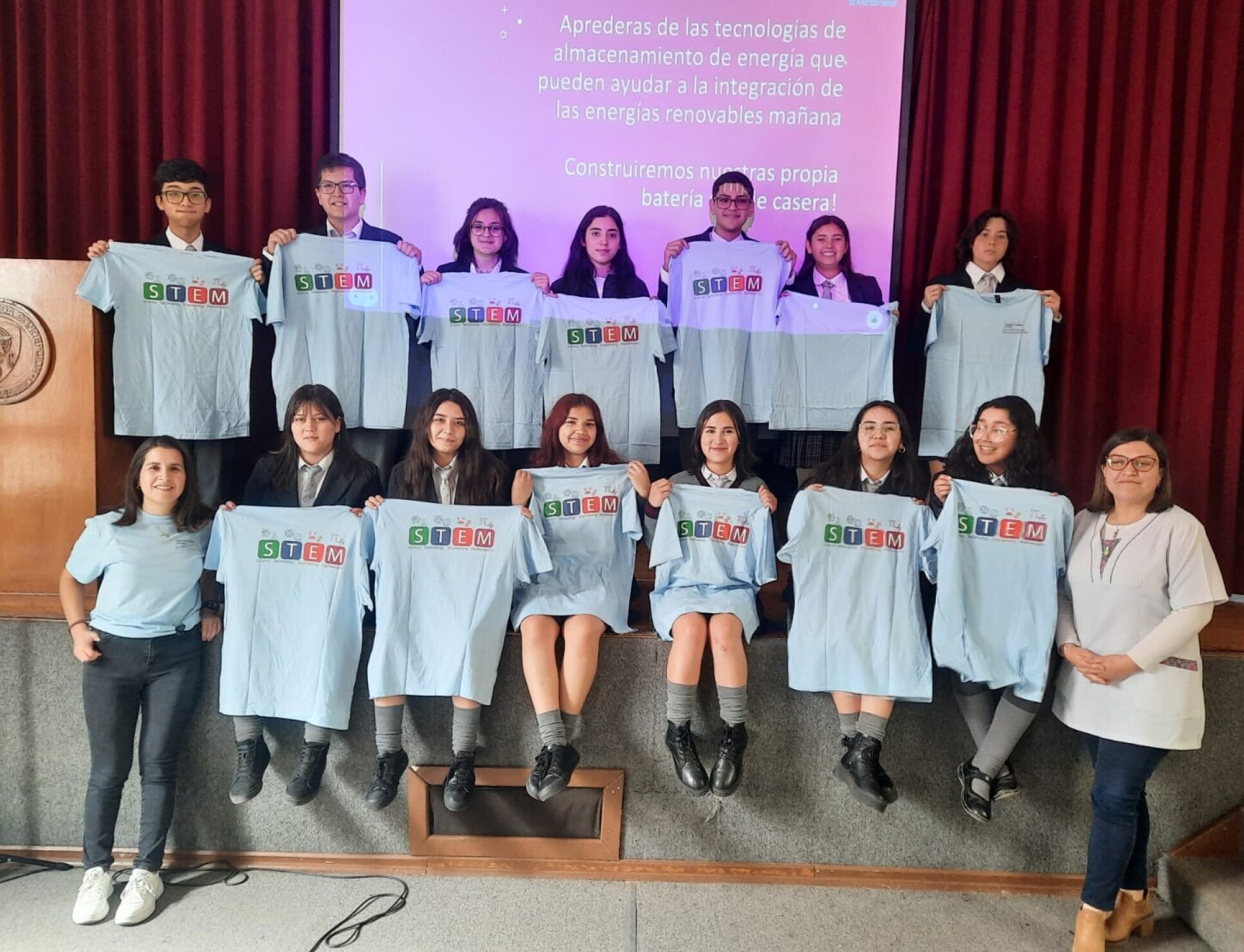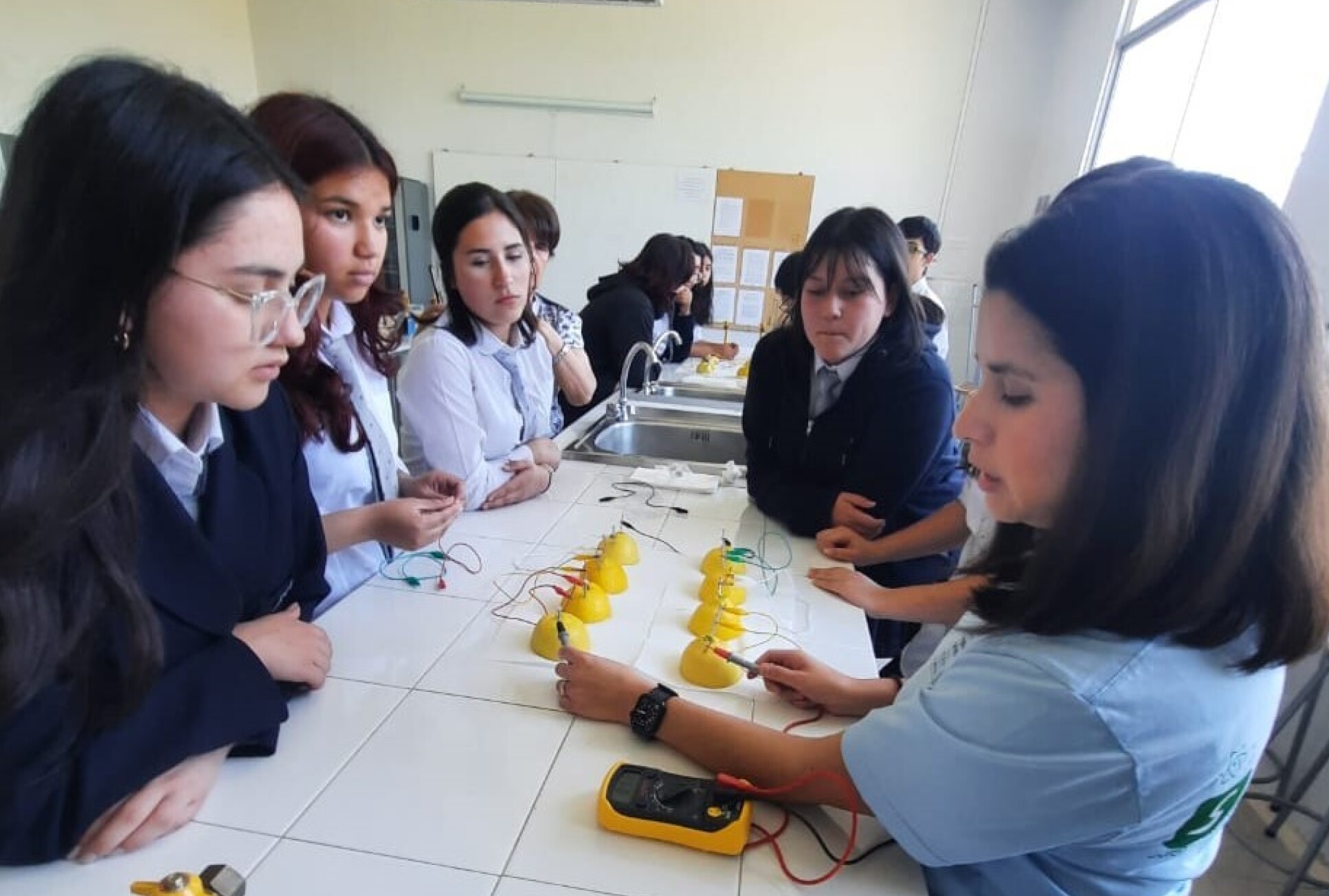ESE delivers impactful Women in STEM outreach workshop in Chile

To inspire the next generation of women in STEM, the Department of Earth Science and Engineering (ESE) hosted an outreach event in Chile last month.
Aimed at young girls in Latin America, the two-day workshop was held at the school of Inmaculada Concepción in San Fernando, Chile, and was designed to foster curiosity and encourage students to explore STEM subjects.
The workshop not only introduced these girls to the energy transition and STEM more generally, but also highlighted the diverse and inspiring journeys of women in the field. By connecting students with role models and providing hands-on experience, the event aimed to break down barriers and hopefully inspire more girls from underrepresented backgrounds in STEM.
The exciting workshop was spearheaded by Dr Catalina Pino-Muñoz, Research Associate at ESE, who used to study in the school of Inmaculada Concepción herself. Catalina made the event possible, with the support of ESE’s EDIC Committee Outreach Fund.

Day 1: Igniting curiosity and hearing from role models
Catalina delivered one of the first presentations, giving insights into her academic journey at Imperial, where she works to understand the processes controlling energy conversion and storage systems, as well as teaching in the MSc in Sustainable Energy Futures at The Energy Futures Lab.
The young students also had the opportunity to code in Python and to hear from five prominent Chilean women working in STEM, who shared their experiences and offered valuable advice. Dr Paulina Quintanilla, who completed her PhD at ESE and is now a Research Associate in the Department of Chemical Engineering at Imperial, was one of the speakers on the first day.
Day 2: Coding and building lemon batteries
On the second day of the workshop, the students reflected on the previous day's learnings and discussed the role of women in STEM before moving on to a session on smart grids and energy storage – which looked at Li-ion batteries, fuel cells and electrolysers. The second day also featured a Python session, as well as an activity where students built a lemon battery and experimented with a fuel cell/electrolyser toy car.

The students also had the chance to meet another group of inspiring Chilean women on the second day, including Ms Jerusa Brignardello Guerra, a Research Postgraduate from the Department of Metabolism at Imperial, among others. The speakers shared their own unique journeys and insights before wrapping up the second day of the workshop.
Reflecting on the inspiring event, Dr Catalina Pino-Muñoz said:
“I am incredibly proud to have organised and facilitated such an event. Breaking barriers to education and fostering diversity in STEM is everyone’s responsibility, and I hope this event plays a small but hugely important part in building a more inclusive future for women in STEM.”
Article text (excluding photos or graphics) © Imperial College London.
Photos and graphics subject to third party copyright used with permission or © Imperial College London.
Reporter
Diana Cano Bordajandi
Department of Earth Science & Engineering